Florence Nightingale: Where did modern nursing first begin?
- Published
- comments
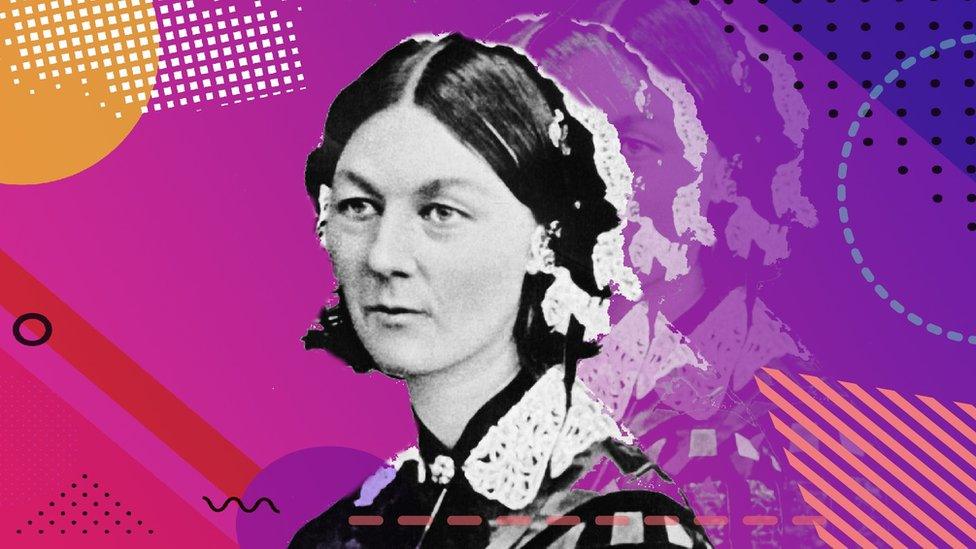
Florence Nightingale was born on 12 May 1820.
Her name is one you might have come across during your history lessons at school.
Not only is Florence an important woman in history, her pioneering work in nursing is still celebrated to this day.
The medical profession is vital as doctors, nurses and other medical staff help us to all stay healthy and fit.
Even today International Nurses Day is celebrated on Florence's birthday each year.
So where did it all begin for the nursing trailblazer? Read on to find out more.
A privileged upbringing
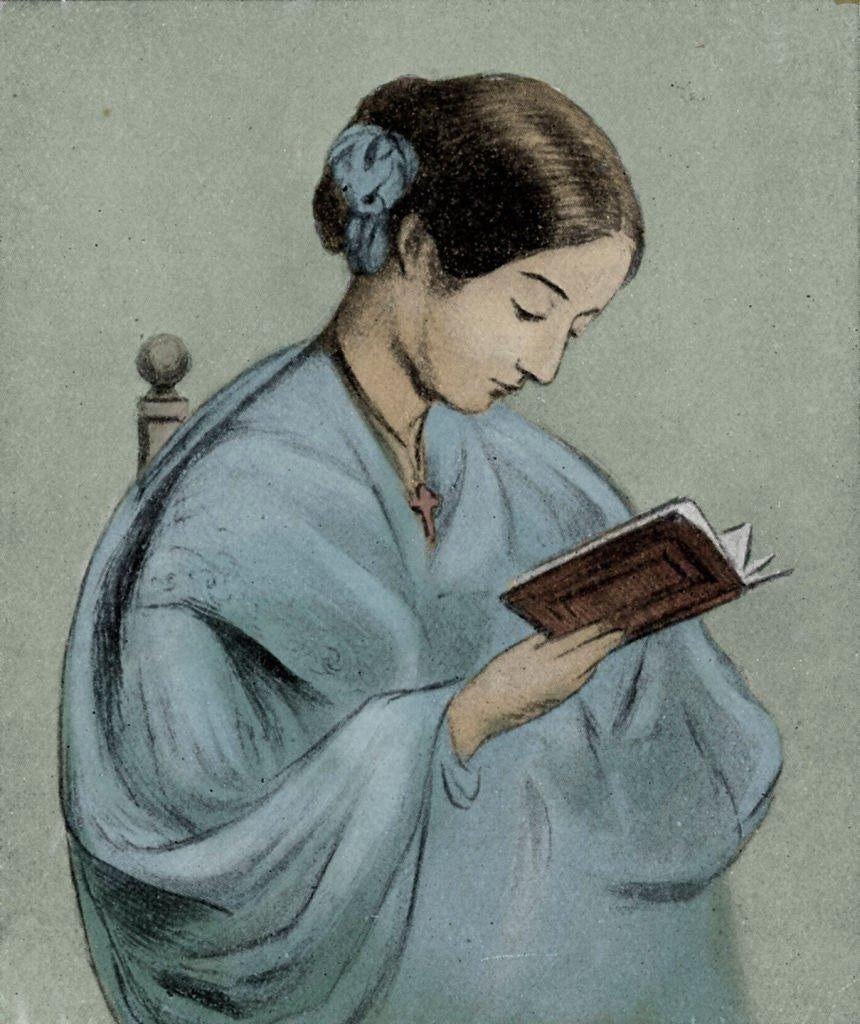
Florence dreamed of becoming a nurse
Florence Nightingale was named after the Italian city she was born in, but grew up in England and came from a well-off family. Her father, William, was a wealthy landowner.
Like other girls with similar backgrounds Florence was expected to marry into a suitable family and have children when she reached adulthood, but she had other plans.
Florence was interested in education and learning from a very young age and was inspired to do more with her life.
Horrible Histories: Formidable Florence Nightingale
Watch the Horrible Histories' Florence Nightingale special here.
The nursing journey begins
Florence wanted to help people and felt God was calling her to become a nurse, an idea that her parents weren't willing to support at first.
Hospitals during the Victorian era were in pretty awful condition and nurses at the time weren't trained. However, Florence was desperate to fulfil her dream of becoming a nurse and she paid lots of visits to hospitals and health facilities to find out more.
Her parents eventually allowed her to spend some time at a German school for nurses and female teachers.
War breaks out

The Battle of Malakoff, pictured here, took place during the Crimean War
Florence was offered a job as a superintendent at a hospital for women in August 1853 after she'd returned to the UK.
The Crimean War broke out in 1853. Britain, France, Turkey and Sardinia joined forces to fight against Russia.
Florence was asked to bring together a team of 38 nurses who would go to support soldiers at a military hospital in Turkey.
This was the first time women were allowed to serve in the army.
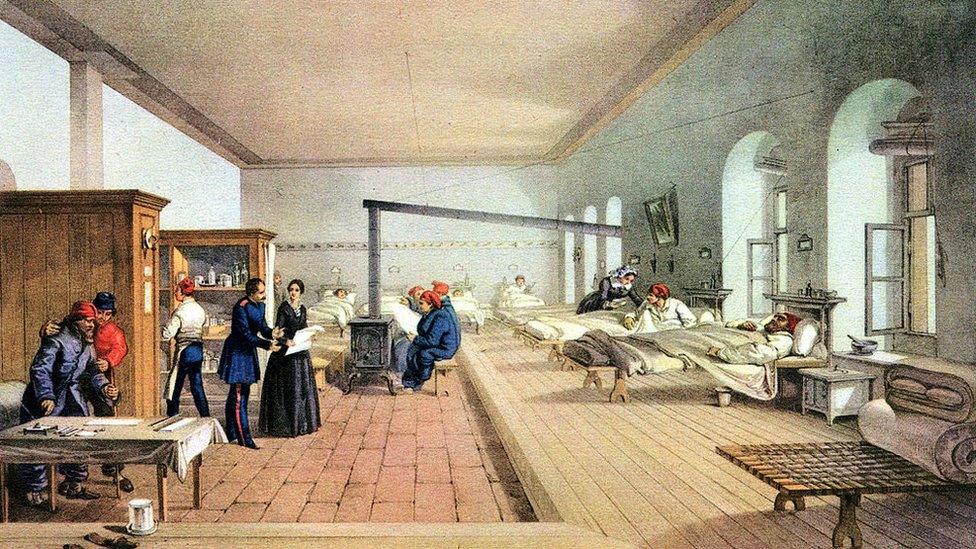
Florence and her team worked hard to improve conditions at the military hospital in Turkey
The conditions at the military hospital were dreadful; there were rats, lice and the floor was coated with people's poo!
Following their arrival, Florence quickly set her team the task of cleaning up the hospital and making sure the soldiers were well looked after.
The male doctors at the hospital weren't very happy as they didn't like the idea of having women around.
However, they eventually had no other choice but to give in as they desperately needed the help and they let Florence's team get on with their work.
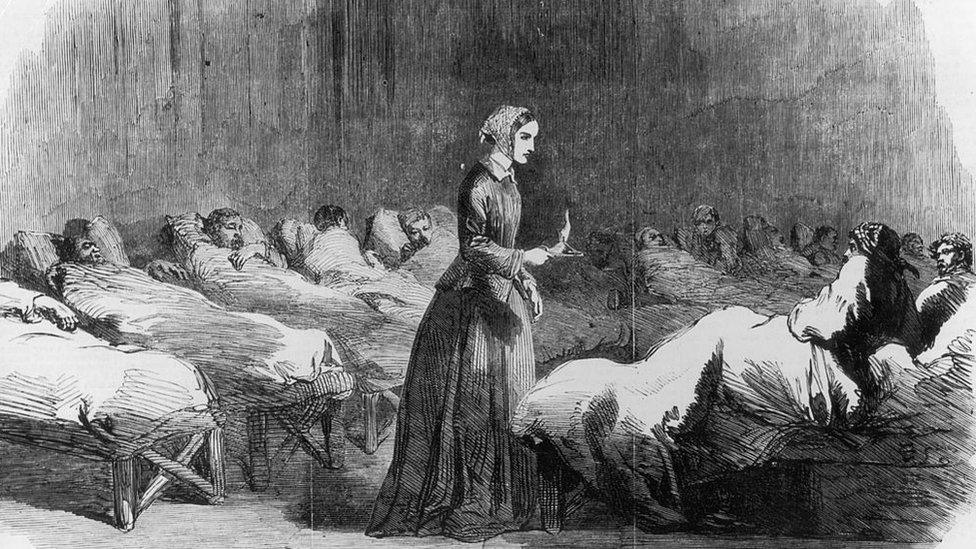
Florence Nightingale became known as the 'Lady with the Lamp'
Florence famously became known as the 'Lady with the Lamp' after a picture of her holding a lamp at night while tending to patients was published in a national newspaper.
In fact, she ended up becoming a bit of a celebrity.
Despite the efforts of Florence and her team, thousands of soldiers lost their lives during the Crimean War.
Lots died of infections and diseases, in part because of the dirty conditions in the military hospital.
Things take a turn for the better
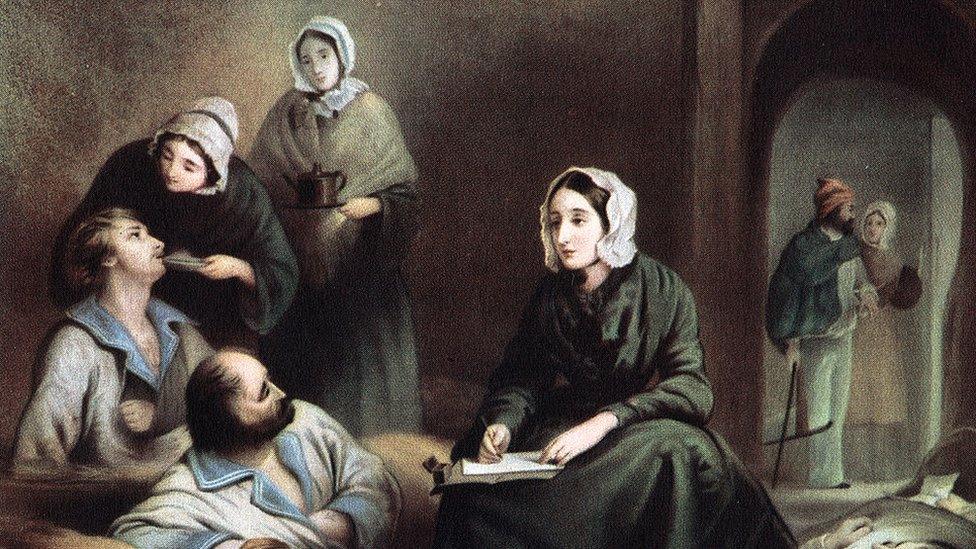
Despite the efforts of Florence and her team, poor sanitary conditions led many soldiers to lose their lives
At first, Florence thought the high death toll was down to injured soldiers not getting the nutrition they needed.
The British government sent out a Sanitary Commission to investigate what was happening at the hospital Florence was working at in addition to others in Scutari.
It was soon discovered that the hospital had been built on a sewer and soldiers had been drinking contaminated water.
The system was improved and the hospital flushed out to make it cleaner.
Florence also said that people should wash their hands more to reduce the spread of germs.
This eventually led to a fall in the death rates.
New discoveries
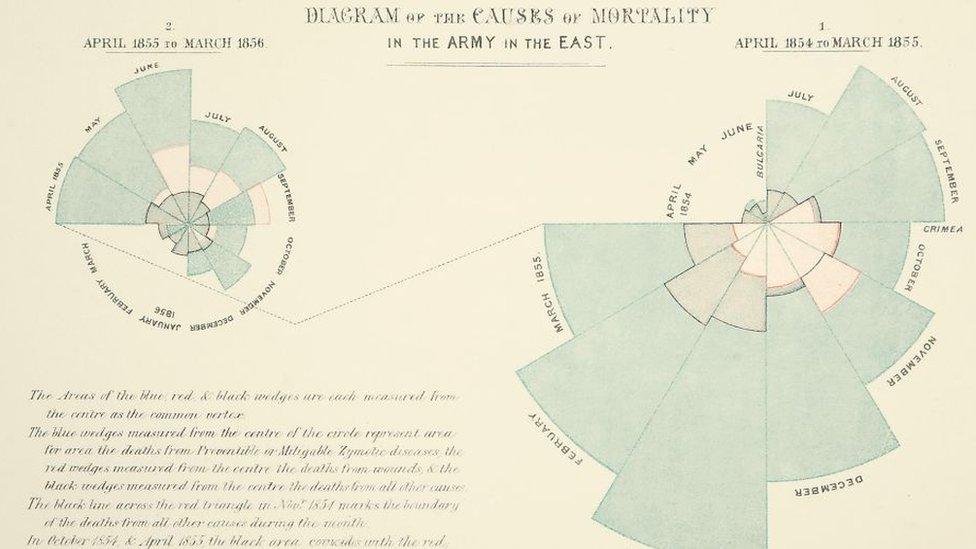
Florence Nightingale turned her findings into a simple diagram to help people better understand her findings
After the Crimean War ended in 1856, Florence was desperate to find out what exactly had caused so many deaths.
With Queen Victoria's support, Florence helped set up a Royal Commission into the health of the army. She worked alongside leading statisticians and together, they tried to make sense of the data on the deaths of soldiers during the war.
The results were far from expected - 16,000 of the 18,000 deaths weren't because of war wounds as Florence had first thought, but it was actually preventable diseases that were the culprit.
She created a diagram to present her findings. This showed that the number of deaths had fallen by an astonishing 99% in a year after sanitary conditions at the military hospitals in Scutari were improved.
Florence later became the first female to be inducted into the Royal Statistical Society.
Leaving a legacy
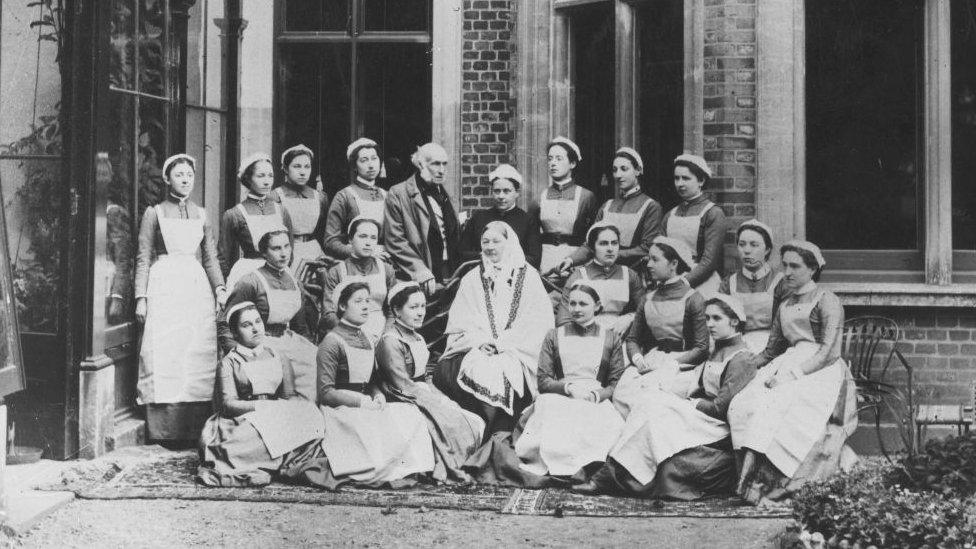
Florence Nightingale's work changed the nursing profession forever
In 1859, Florence published a book called Notes on Nursing which helped educate the poor on how they could best care for their sick relatives and neighbours.
She later used a large sum of money Queen Victoria had given her to found the Nightingale School of Nursing which was the first of its kind.
Those who trained at her school were sent to hospitals all over the UK and helped spread Florence's new ideas.
Florence became the first woman to be awarded the Order of Merit for her service when she was 87. She died at the age of 90.
- Published22 April 2020

- Published17 April 2020
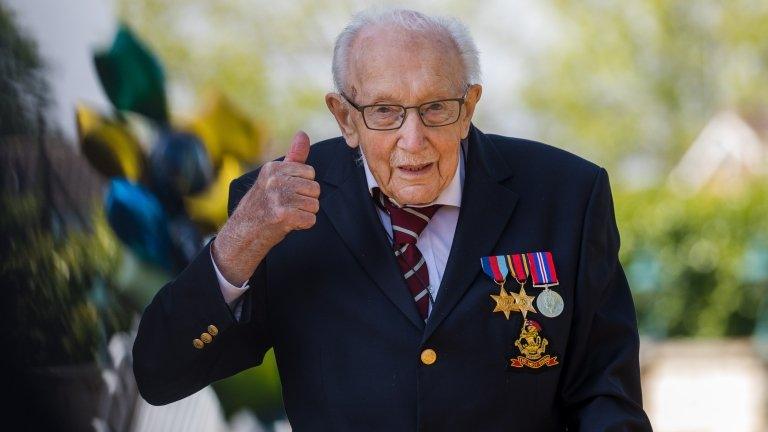
- Published18 April 2020

